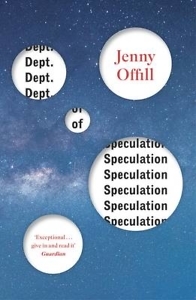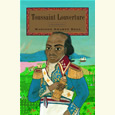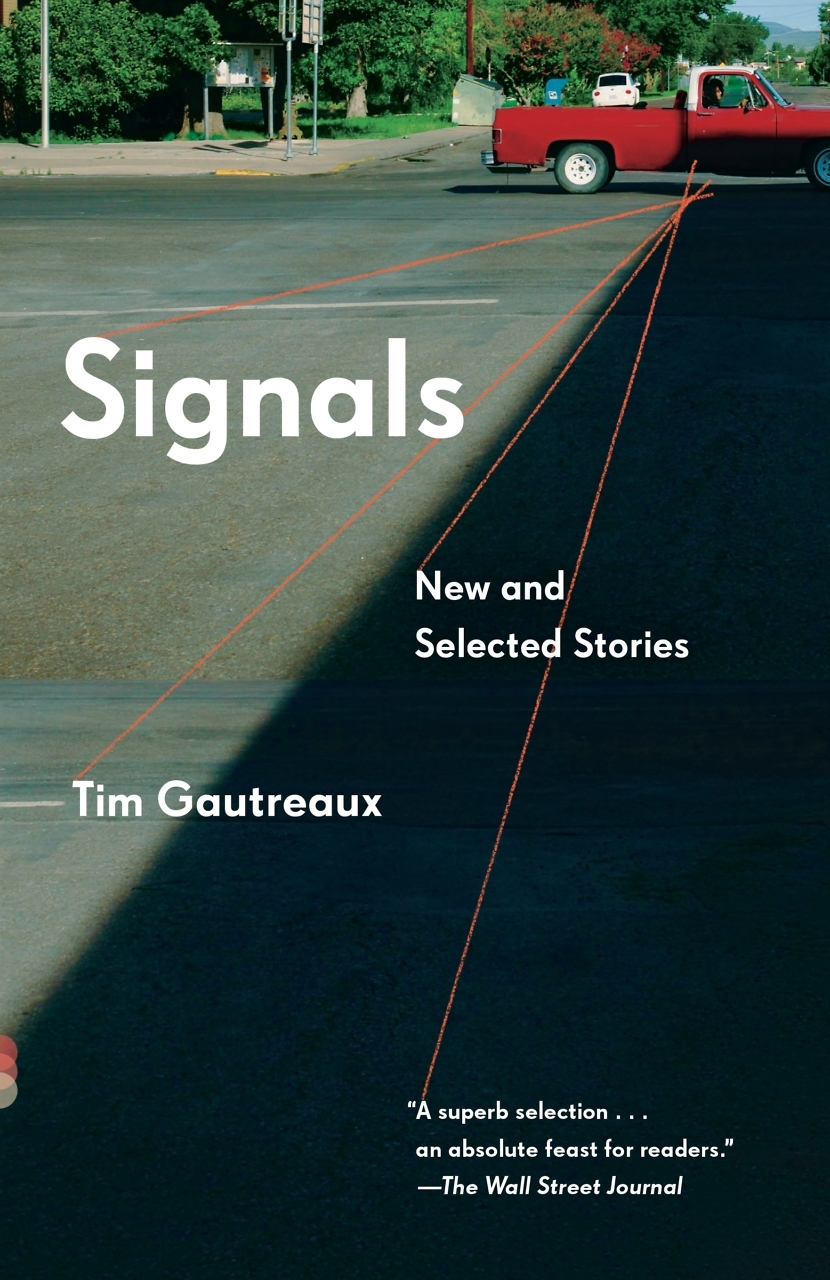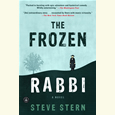Fragments Swarming Together and Apart
Jenny Offill discusses the unexpected success of Dept. of Speculation
“Memories are microscopic,” Jenny Offill writes in her second novel, Dept. of Speculation. “Tiny particles that swarm together and apart.” In many ways, the novel functions as a sort of textual microscope, zooming in on what we often consider too small to write about, too tiny to matter—maybe because we haven’t looked with close attention at what’s there. Dept. of Speculation is composed of interlocking fragments and vignettes, quotes and observations. Offill’s narrator is attempting to ghostwrite a book about space, and facts about the vast cosmos sit on the page next to meditations on everything from bedbugs to Yoga People to the creeping fissures in a marriage to the daily difficulties in art, work, and love.

Dept. of Speculation was named one of the 10 Best Books of 2014 by The New York Times Book Review and was shortlisted for the International Dublin Literary Award, the Pen/Faulkner Award, and the Los Angeles Times Fiction Award. Offill is also the author of the novel Last Things. She answered questions from Chapter 16 via email.
Chapter 16: It’s now been a little over three years since Dept. of Speculation was first published. That novel achieved the kind of mainstream success not often associated with works of literary fiction, particularly not those that employ fragmented, experimental styles of narration. What has it been like, returning to the writing desk with that book behind you?
Jenny Offill: I never expected Dept. to have much mainstream success. It seemed like such an oddball novel that I wasn’t at all sure how well it would translate to anyone but other writers. It’s been a lovely and thrilling surprise that it found so many readers.
In terms of writing my new novel, I found that the main difficulty was that I was talking about this one so much that it meant that the new one didn’t occupy enough space in my head. But now I’ve been working on the new novel for about four years and it’s finally on center stage.
And sure, I’ve had some middle of the night worries about how people might have their knives out for this new one. But in the end, you can’t worry too much about how a book will be received when you are writing it. It’s deadly to think about. You don’t have control over anything but the sentences themselves.
Chapter 16: I knew going into Dept. of Speculation that there would be moments of real sadness, but I hadn’t expected how funny the book would be, too. (That Rite Aid-loving devil baby!) I wonder sometimes if people are slower to label women as funny when describing their work. Can you speak a little about the role humor plays in your writing?
Offill: Humor is a really useful way to undercut some of the darkness in a novel.
In Dept., it was also a way to show that this seemingly solipsistic narrator had more self-awareness than it first appeared. And of course it’s a famously effective defense mechanism. Some evolutionary psychologists have argued that laughter helps us manage and tolerate the feeling of being threatened. The threat to the narrator may be existential in nature but it’s still a threat. Her life is falling down around her.
Chapter 16: I’ve heard you say that Dept. of Speculation was born from the ashes of another novel. How did you know what parts of that book to let go and what parts might be worth salvaging?
Offill: I didn’t know for a long time! I just kept going around and around and gnashing my teeth and tearing my hair out. I really wanted to give up on the other novel. I knew it didn’t have enough life to it, but smart, well-meaning people kept suggesting I stick it out, and so I did for quite some time. Then a brilliant friend of mine said, Hey, why don’t you just take fifty or 100 things from that other novel and start over? He meant anything, images, sentences, ideas, etc. I took his advice and from those little scraps I wrote Dept.
It was terrifying but also very liberating to walk away from that other book. I had been working on it for years, so it felt a bit crazy to give up on it, but I knew on some level that I had to. You have to follow your gut with this sort of thing. And my gut kept saying this novel will never be good enough.
Chapter 16: In your first novel, Last Things, Grace’s world view is partially informed by a book given to her by her mother, The Encyclopedia of the Unexplained. There’s a section in The Encyclopedia of the Unexplained about girls raised by wolves, which Grace seems to use almost as a code for understanding her own upbringing. Were there any books or media that you consumed as a child that informed you in some way growing up, or that informs you as a writer now?
 Offill: I still use that idea as shorthand as is in “Oh, well, she was raised by wolves” about people with crazy or chaotic childhoods. Many of my favorite people fit that description to some degree. I did consume all manner of nutty nonfiction books as a kid about things like spontaneous combustion and lost cities and alien astronauts. I think I liked them because such stories pointed to the idea that the world was much stranger and more terrifying and more beautiful than most people ever admitted. I suppose I still believe that, and it comes through in the kind of things I write.
Offill: I still use that idea as shorthand as is in “Oh, well, she was raised by wolves” about people with crazy or chaotic childhoods. Many of my favorite people fit that description to some degree. I did consume all manner of nutty nonfiction books as a kid about things like spontaneous combustion and lost cities and alien astronauts. I think I liked them because such stories pointed to the idea that the world was much stranger and more terrifying and more beautiful than most people ever admitted. I suppose I still believe that, and it comes through in the kind of things I write.
Chapter 16: You taught a class at Columbia University called The Unhinged Narrator. Did that class—or its reading list—in any way affect how you approach moments of unhinged narration in your own work?
Offill: I change the list each semester but a few things stay on it, such as Lolita by Vladimir Nabokov, Hunger by Knut Hamsun, and Jesus’ Son by Denis Johnson. All these writers taught me important things about how to propel a story through voice and emotion rather than by more traditional plot mechanisms. And I think the darker the book, the more impressed I am if it is funny too. There’s something musical in all these books, how the writers bring in one kind of note and then another very different one soon afterwards as counterpoint. I’ve tried to learn from that.
Chapter 16: Your novels are filled with trivia and facts. In interviews you’ve described a ritual in which you roam the nonfiction and reference sections of libraries, seeking resonant or surprising information. Do you have a favorite fact or quotation that hasn’t made it into one of your novels and that you don’t mind sharing?
Jenny Offill: This one comes from a fascinating psychology book called A General Theory of Love. It was filed in my notes under the heading “Limbic Hierarchy” (??!!), but I’ve never managed to work it in even though I think of this passage often, especially when I look at my dog. I love how the best part is contained in a parenthetical. Here it is:
First came fear, then disgust, then anger, then the later emotions. Possibly humans are the only ones who feel jealousy, pride, shame. Most likely they are the only ones that feel and participate in religious fervor. (Though perhaps there is something akin in dogs and their masters.)

Lee Conell’s fiction has appeared in places like Kenyon Review, Guernica, Glimmer Train, and American Short Fiction. She earned her M.F.A. at Vanderbilt University, and her debut story collection, Subcortical, will be published in November 2017 by the Johns Hopkins University Press. She lives in Nashville.





